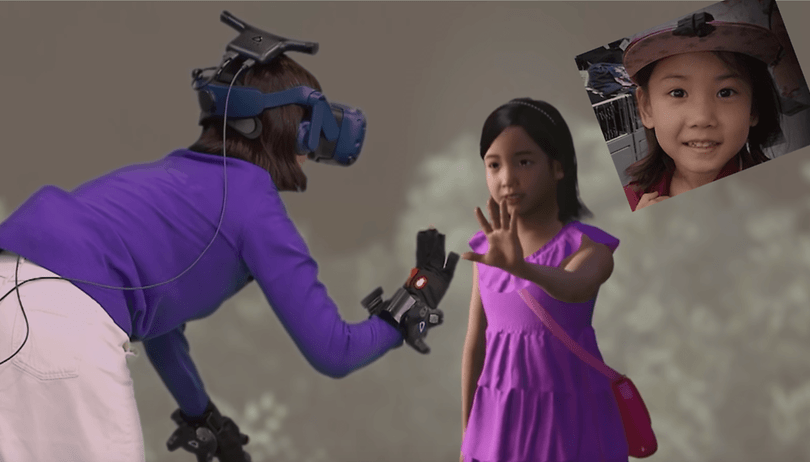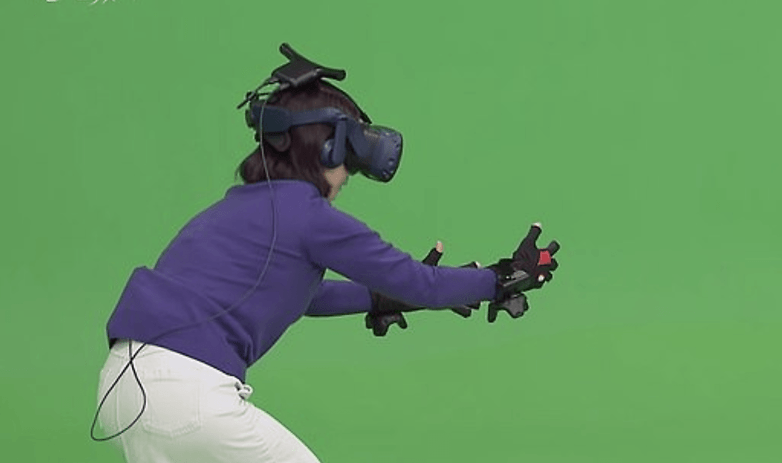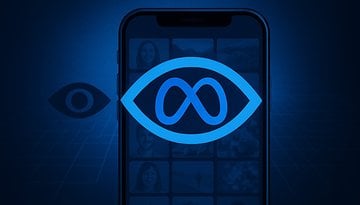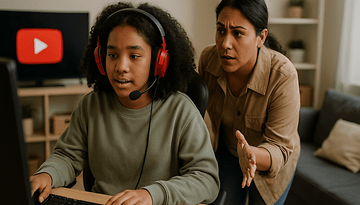Why bringing the dead back to life with VR is torture


Read in other languages:
The producers of the South Korean TV documentary "Meeting You" put VR glasses on people to bring them together with their deceased loved ones. In doing so, the bereaved could talk to the virtual person and even touch him or her. What sounds maudlin at first is hardly bearable. Because the scenes are more than disturbing. I want to share my thoughts with you.
I cannot begin to guess how a person would survive the loss of his or her own child. Probably nobody really survives such a traumatic experience, life just goes on somehow. There is help for those affected to find their way back into life and to cope with the severe loss, such as therapy, grief management, and medication. The way of coping with grief, which was recently shown in a TV documentary, borders on torture for me. The first episode of a docu-show (the authenticity is not clear) shows a mother named Jang Ji-sung, who lost her little daughter Nayeon in 2016 due to an unspecified illness. I am including the YouTube video, but would like to warn you that it's not an easy watch.
It shows how Jang stands in front of a huge green screen in a studio with an audience and wears VR glasses and so-called Haptic VR Gloves, i.e. gloves that exert pressure on the skin. Then suddenly the background changes. Spectators and Jang are drawn into a peaceful colorful garden, in the background, a soft child's voice is heard while the mother's voice breaks and turns into a disturbing sobbing. A little girl, obviously created virtually, merges from around a tree trunk and calls for her mother. The child in the purple dress stops in front of Jang and looks at her face with big eyes. Completely overwhelmed, the crying mother waves in front of her dead child's face, tries to touch her face, cries, sobs, wants to touch it. It was at this stage that I closed the browser tab.
We don't know the psychological effects of this
The scenes certainly triggered in me exactly what the producers had come up with. Under the guise of a novel way of coping with grief, the makers of the documentary explain how virtual reality can help those affected to get over the death of a loved one. What I see, however, is the greatest torment you can do to a human being. It seems to me as if this mother's patched-up heart was torn from its fragile anchorage within seconds. With every second that the child says sentences like "Mommy, I miss you so" or "Mommy, where have you been all this time?" or "Mommy, celebrate my birthday with me", every single bandaid seems to be slowly but thoroughly pulled off. The added value of this encounter is not apparent to me in terms of coping with grief.
Dr. Blay Whitby, a technology ethicist at the University of Sussex, also believes that the format raises worrying ethical questions, he told the British newspaper, The Daily Mail: "We simply don't know the psychological effects of such a reunion with someone," says the expert. Can virtual reality really be helpful in this form? How do people who have lost a relative, a friend, a child see it?
Mother Jang, who wears parts of the ashes of her deceased daughter as a necklace, explains within the documentary that a great dream has come true with this experiment. "Three years after her death, I think I should love her more than I miss her so that I can be confident when I meet her later," Jang says. She wishes that more people who have suffered a loss would be able to cope better with death through virtual reality.

What's behind all this? The whole thing sounds more than bizarre to me. The pain of the mother during the encounter is heartbreaking. The statement sounds cool and not very emotional. Almost like a slogan. Technology ethicist Whitby, adds: "Many psychologists consider such measures to be potentially unhealthy. The problem is that people can be exploited by the profit hunger of others." Is money to be made from the grief of people here? In such a macabre way? And how far can, or should, virtual reality go?
Bringing the dead back to life using current technologies is nothing new. As early as 2016, an American start-up company drew attention to its ability to "interact" with deceased people. The inventors of eterni.me offer people to make themselves immortal by creating a profile during their lifetime. In doing so, the company makes use of the digital footprint that we all chance to leave behind to a greater or lesser extent on the Internet these days. Emails, chat histories, media such as videos or photos, postings in social networks - the manufacturer collects all of this on request and uses algorithms to create a digital avatar that is designed to make your behavior, body language and other personal characteristics accessible to others forever. With the help of a digital chat archive, even realistic chats after death should be possible. And suddenly, the outstanding Netflix series "Black Mirror" is no longer a satire of the near future.
What do you think? Would you like to meet with deceased people in a VR environment or make your digital data available for posterity? Let us know!
Source: DailyMail




















The mother left a post on her blog after the filming saying that the experience was good for her because she felt like she was dreaming a dream she's always wanted to dream, but quite couldn't. She said whenever she saw Nayeon in her dreams, her daughter never smiled and only stared at her with a look of resentment-- one that presumably stemmed from the guilt she feels towards Nayeon. I also thought this was almost cruel at first, but watching the documentary and seeing her say that, it made me change my mind and believe that she was able to get closure this way. Though... not sure if closure is the right word because I don't think we can ever fully recover from losing a loved one... but at least return to a life of normalcy.
There is now a great field for work for online therapists. People around the world are now more afraid, stressful and so on. So I can say for myself that it is most logical to talk with experts here and they can help just the same to mentally organise themselves. You should come here video chat therapy https://calmerry.com/video-chat-therapy/ , for example, I already know where to go They helped me to heal and find harmony so much.
The appeal escapes me.